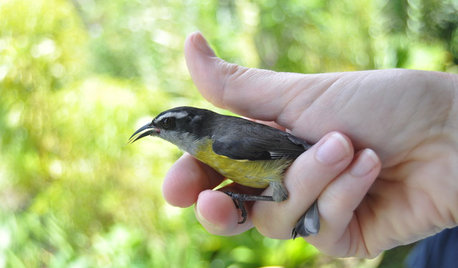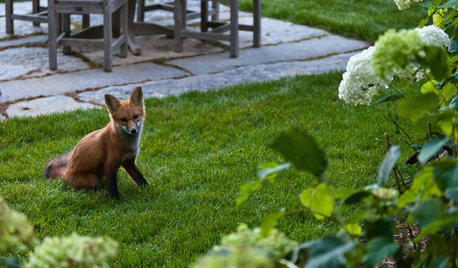What do you do with animal manures in an organic garden?
Frequently many people ask questions about the use of animal manures in their gardening schemes. Thousands of years ago, the ancient organic farmers used animal manures as a mandatory and essential agent for soil conditioning and plant fertilization. Today many people are fearful of the use of any animal manures in gardening, due to more and more scary reports of potential diseases. Also there are less farmers today that apply animal manures in their farming techniques, than several hundred years ago. So the world is finding it harder and harder to dispose of animal manures in our society today, than several centuries ago.
So what do you do?
First of all you must understand that any type of fresh animal manure behaves a lot differently in the soil than mature compost or well aged manures. NOTE: Well aged manures act a lot like mature compost in the soil.:
1. Fresh manures are too strong and raw for most growing plants. It contains a lot of available soluble nitrogen in the form of ammonium or proteins. Most raw animal manures contain the wrong form of nitrogen and the wrong form of bacteria for gardening use, from the original animal's digestive tract. This can burn or kill plants if abused. Compost will never burn or kill plants.
2. Also animal manures by themselves are classified as "greens" or high nitrogen sources. The soil needs composted organic materials that is a blend of "browns" (high carbon materials) and "greens", in order to maximize the correct balance of soil microbial activity and the availablity of nutrients in the soil for plants. Animals manures are best incorporated in a soil building program when mixed with high carbon materials like straw, leaves, or untreated sawdust. Using more browns than greens in any animal manure based compost will also help neutralize NaCl salts via aerobic microbes faster. Using molasses products in a tea form is a even faster and better way to speed up microbial activity, growth, and internal heating in the pile, to stabilize and balance out the nutrients in the organic matter in the compost pile.
3. Fresh manures also contain too many complex undigested materials like pathogens, or NaCl salts from animal feeds, that may harm plants or soil organisms if not careful. Compost has all these things broken down and digested by aerobic microbes.
4. Many animal manures have urine mixed in it. All raw bird manure is always premixed with urine and manure. Urine contains mostly urea in it. Urea is one of the oldest, safest, and free sources of nitrogen known to man. Urea breaks down fast in the soil, the compost pile, or in a compost tea brew. Human urea alone, has a NPK ratio near 45-0-0.
Vegetarian animals like cows or horses, produce poop that is more easily digestable by aerobic microbes than say carnivorous animals like chicken or pig manure. Chicken manure is a great manure, but it is more stinky, more alkaline, and has far more available ammonium nitrogen in it, than say cow or horse manure. Some composting experts are successfully composting human manure under controlled conditions.
Both fresh human manure and chicken manures contain some heavy metals and pathogens in it. However, the metals in not an issue in composting, due to the widespread acceptability of chicken manure composting.
Many people are cautious of composting fresh pet manures like dog and cat poops. There has been some reports of fresh cat manure having ill effects on unborn children with pregnant woman.
NOTE: The main reason why most organic books and websites are strict about only composting vegetarian animal manures or plant wastes, is because the average home gardener is a passive composter. These conservative authors play it safe, so that the average composter doesn't hurt himself, or create stinky conditions that may attract pests, or disturb the neighborhood. Only an active hot composting process can totally guarantee a safe, healthy, mature compost from potentially risky materials like human manures, meat products, or other questionably high nitrogen organic materials. Keep in mind that products like bone meal, blood meal, and fish emulsion are all great acceptable natural fertilizers made from cooked meat products, under controlled composting conditions. Remember to only compost any animal manures or meat products that you feel totally comfortable with as an "experienced" composter.
Horses only digest about 1/4 of all the grass and grains they consume. Therefore horse manure is a very weedy manure.
On the other hand, cows have 4 stomachs. So their manure is more digested, and has less weed seeds in it.
**********************************************************
Well aged animal manures are the best for all gardening tasks. If you only only have fresh manures, hot composting is definitely the answer to all these issues. However, if you hot compost any fresh animal manures to internal temperatures at or above 140 degrees F, for several days, mixed with enough high carbon materials, you can guarantee a safe, healthy, mature composted product, that has removed almost all of the potential pathogens, diseases, and weed seeds in the original animal manures.
**********************************************************
Another option, is to bury or till in any fresh manures into the soil in the winter time before spring. This gives the manure enough time to break down, and the aerobic microbes to grow and release the humus created from the manure into the soil. However, you still got the risk of new weed seeds sprouting in the spring from the fresh manures.
In a no-till garden, you can apply any type of animal manure on top of the soil during the fall/winter season, then grow a thick legume/grain cover crop combination before spring. This will also supply nutrients to the cover crop as it grows, as well as give the soil microbes enough time to digest the manure into humus into the soil. In this method any new weed seeds are choked out or green mannured whenever the cover crop is mowed or chopped down.
Never use fresh animal manures in any aerobic tea brewing method either! Whatever pathogens, NaCl salts, or diseases in the original material will grow tremendously in the tea. It's best to use well aged compost or composted manures in any tea brew. Aerobic bacteria and fungi are the best microbes in composting and soil building that digest and destroy most disease causing bacteria. Some anaerobic bacteria is harmful to plants and soil organisms.
In conclusion, if you decide to use animal manures in your composting scheme, there are many benefits:
1. You may be able to find a free soure from a local farm, horse clinic, police department that uses horses, zoo, etc. This gives you a great free source of "greens" for your compost.
2. All animal manures are great sources of beneficial microbes to stimulate your compost piles. This increases the compost decomposition rate.
3. Animal manures really increase internal heating in hot compost piles.
4. All composts have lots of beneficial aerobic bacteria and fungi growing in it for soil building and plant fertilization. Animal manures are naturally high in actinomycetes as well as bacteria also.
5. All animal manures are rich in NPK and calcium. Therefore they usually alkaline when fresh. However, all mature composts have a near neutral pH after the organic matter has been broken down by the composting process.
6. If sawdust is mixed in the poop, you have extra potassium in the mix. Straw and hay is rich in phoshorus also.
7. All animal manures break down fast.
8. Many animal manures have urine (urea) mixed in also. This is extra nitrogen for the compost.
Under a well managed aerobic hot composting system, animal manures can still play an important part in modern natural farming as it did centuries ago.
Happy Gardening!













Related Discussions
Safe termite control for organic garden
Q
safe manure for garden
Q
isnt all humus and manure organic???
Q
Green Manure and Animal Manure questions
Q